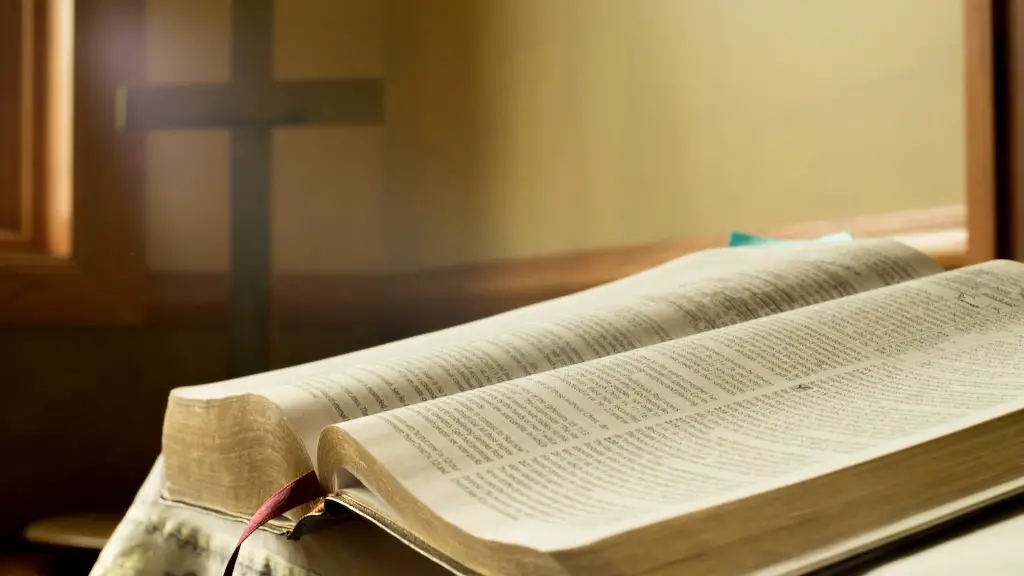Definition of Prophet
A prophet is defined in the Bible as an individual chosen by God to communicate His message to His people. As such, a prophet is a messenger of God, who offers warnings or guidance to people. In the Old Testament, prophets were not limited to men, as women could also be prophets — such as Miriam, sister of Moses.
The mission of the prophet was to proclaim God’s message and to warn His people of their wicked ways. They also offered God’s people spiritual guidance and called them to repentance. The prophets were often keenly aware of how current events, both good and bad, were realizations of God’s prophecies.
Prophet is the one who speaks on behalf of God. In Hebrew, the term “navi” refers to a prophet. In Greek, the term “prophetes” is used. Furthermore, the Latin Vulgate uses “propheta” to refer to a prophet.
Role of Prophets
The prophets in the Bible were called by God to do His work. They were sent to preach the faith and to serve as messengers of God’s will. If people failed to heed the warnings of the prophets and to obey the commands of God then punishment would be meted out -alternatively, the prophet would lead them to repentance.
The primary aim of the prophet was to lead people to God. They served to emphasize the moral standards of God and called the people to acknowledge and live in accordance with His laws. The consequences for disobedience were often harsh, with God sending plagues, famine, wars and other natural disasters as punishments. The prophets not only foretold of future events, but also offered comfort and encouragement in difficult times.
The prophets of old, such as Isaiah and Jeremiah, served as examples of faithful believers and righteous men. They showed humility and wisdom; actively seeking God’s guidance and faithfully proclaiming His Word. The prophets inspired the people to faithfulness and love of God.
Types of Prophets
The Bible lists a variety of different types of prophets. Major prophets were sent to speak to the Israelites or Gentiles in an authoritative and influential way, while minor prophets were messengers sent to speak to a smaller group of people. There were political prophets, who spoke against the status quo, and sometimes against the political rulers, and social prophets, who condemned social injustices and called for reform.
Another type of prophet, the apocalyptic prophet, foretold of a coming Day of Judgment, specifically predicting the end of the world. Such a prophet was John of Patmos, who described the how the suffering and righteous will be rewarded at the end of time. Some prophets were thought to have a special power, such as Elijah and Elisha, who called down fire from heaven and performed miracles.
Prophets also served as mediators between God and man. As such, they could ask God directly for His help and protection. For example, Moses appealed to God when Pharaoh’s army was approaching and Elijah prayed and was answered with a mighty wind, fire and rain.
Importance of Prophets in the Bible
Prophets were important, as they served as all-knowing spiritual guides, connecting the people to God. They provided hope, warning and guidance to the Israelites and other cultures. Different prophets appear throughout the Bible, informing people about sinful behavior and offering solutions to turn back to God.
The message of the prophets has been passed down from generation to generation and still carries resonance in the present day. The prophetic views, such as environmental concerns, are increasingly relevant in today’s society, with many people concerned about global warming and the destruction of the natural environment.
Overall, prophets play an important role in the Bible, illustrating how to live a faithful life and how to trust in God’s plan. They also show how to maintain a positive outlook, even in times of difficulty, and the importance of turning to prayer in the face of danger.
Modern Prophets
The Bible speaks of prophets up until the period of Jesus Christ. After this, there is a lull in the direct prophetic ministry, as the church had received a final revelation through Jesus Christ. However, as the bible has also said, “God is not done speaking” – meaning that God still speaks through his prophets in the faith community.
Modern prophets often serve as messengers of God’s will to today’s society, acting as spiritual guides and offering spiritual guidance to individuals and groups. These prophets are not the same as those found in the Bible, as they are not chosen by God. They are usually guided by their religious beliefs and teachings, offering moral counsel and providing spiritual comfort. Modern prophets also provide spiritual guidance and advice, which they often do through prayer or meditation.
Modern prophets are often leaders of religious denominations or churches, preachers in a faith community, or individuals who have sought out spiritual guidance. As with their biblical counterparts, modern prophets show how to live a faithful life, serving as examples of faith and inspiration.
Conclusion of the Bible’s Prophets
Prophets have played a significant role throughout the Bible, from Old Testament stories to modern times. By relying on the guidance of prophets, people can better understand their place in the world, their relationship to God, and their own spiritual path. The prophets taught God’s people what is right and wrong, how to worship and how to serve God. They even served as examples of faithful living, exemplifying how to stay positive and connected to God in tough times. In short, prophets are a valuable source of guidance, comfort, and inspiration.




